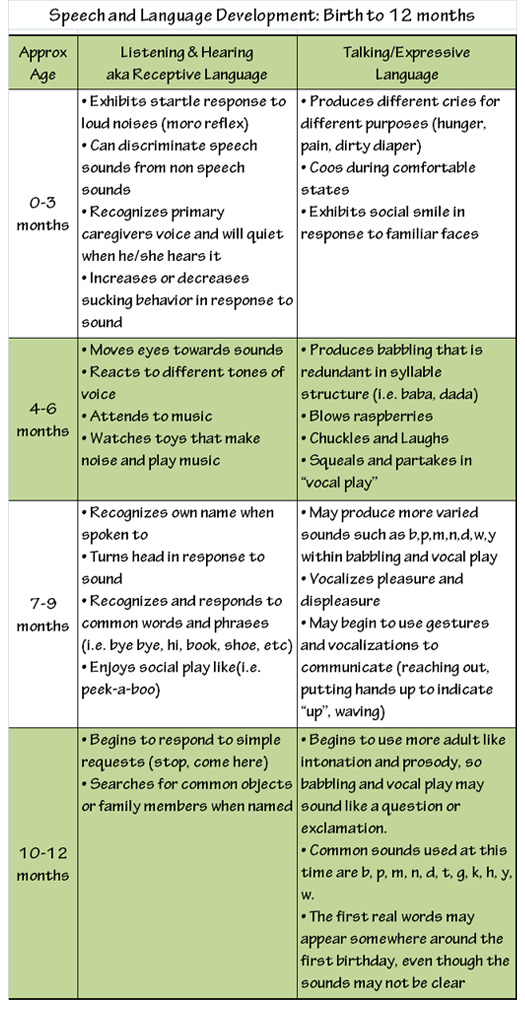Speech is one of the most important methods of communication and has the power to shape our lives, relationships and overall outlook. While every child’s development may vary, understanding typical speech milestones as determined by age can give us insight into what we should be expecting from our little ones.
Birth to 1 Month
At this age, the newborn’s cry can be quite varied. He or she may initially sound like they are “grunting” or “snorting”, before the range of cries more typically associated with infants develops. At this age, nothing more than the cry is to be expected in terms of vocal production.
2 to 3 Months
At this age, babies are developing cooing sounds and increasing their ability to vocalize. Spending time talking to your little one, reading and singing to them will help them to reach the next stages of speech production. You may also hear them responding to you with those happy baby noises that melts the hearts of parents around the world.
4 to 7 Months By this age, babies are usually cooing happily and deeply in response to stimuli, playing with their voices and using them to communicate. In addition to cooing, babies will frequently vocalize their responses to parents and others, letting them know whether they are content or agitated.
8 to 11 Months
At this age, the babbling of babies becomes more and more distinct with syllables like “ba” and “ma” becoming increasingly common. Young children also make attempts to imitate the words that they hear, even if they do not get the pronunciation quite right. Of note, this is the age when children produce their first true word, typically either “mama” or “dada”.
1 Year By his or her first birthday, a baby should have an impressive repertoire of “words” and can typically string two or more together. He or she should also understand much of what is said to him by others, in particular people with which he is familiar. In fact, many parents are astounded that their little ones can follow simple commands such as “find the shoe”!
2 Years
By his or her second birthday, a child’s vocabulary should rapidly expand. He or she should start to understand simple questions like “What’s this?” or “Do you want food?,” though responses are not always distinct and understandable – although your little one may think that you perfectly understand!
3 Years By his or her third birthday, most children have an impressive command of language though there may still be some muffled speech here and there. It’s during the toddler years that children start to like to ask questions and be able to hold conversations with parents and other adults.
4 Years
By the time a child turns four, most of the basic speech skills are well-developed. He or she will be less likely to substitute words for sounds, for example, and can usually articulate most of their thoughts and feelings in a very clear and concise way.



